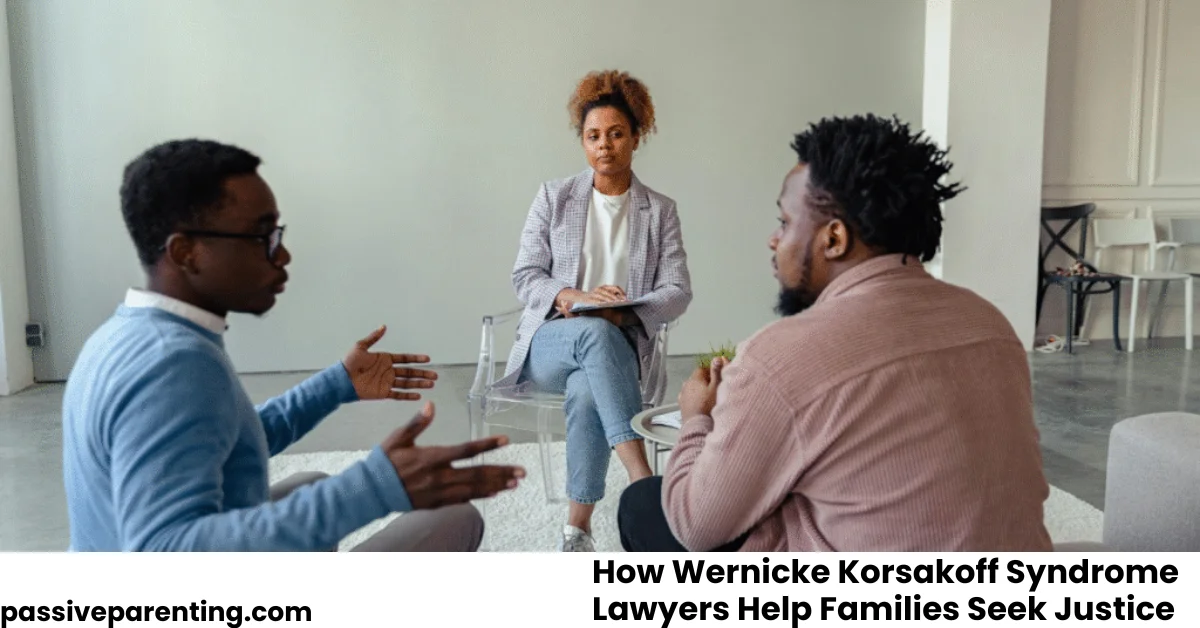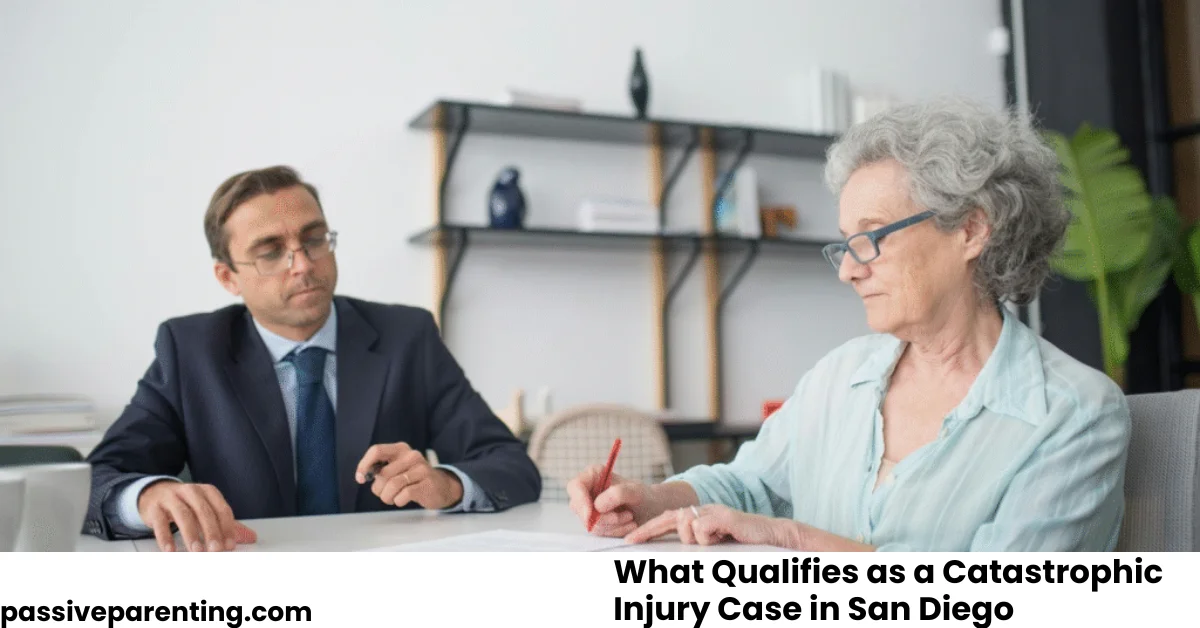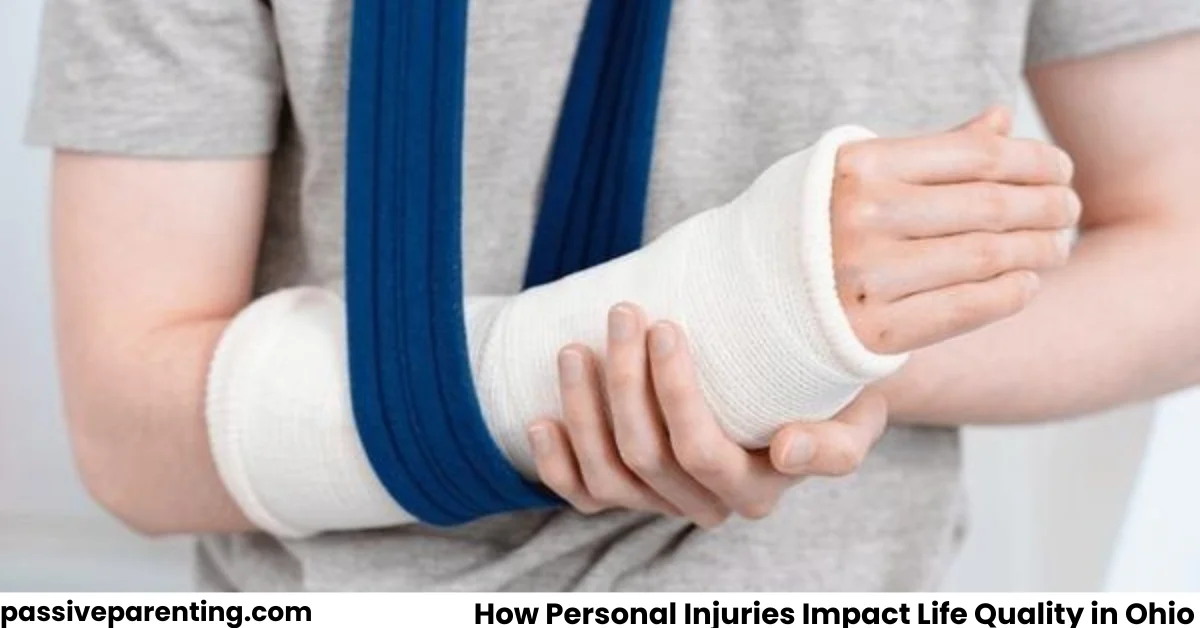Wernicke Korsakoff Syndrome lawyers play a vital role in the pursuit of justice for affected families. These specialized attorneys bring a meticulous approach to identifying medical malpractice or negligence, ensuring that the devastating consequences faced by families are not overlooked. With a deep understanding of the syndrome, they craft compelling legal arguments and navigate complex legal frameworks. Their empathetic support and relentless advocacy offer a beacon of hope for families seeking accountability and resolution.
Understanding Wernicke Korsakoff Syndrome and Its Impact
What exactly is Wernicke Korsakoff Syndrome, and how does it affect individuals? This neurological disorder results from severe nutritional deficiencies, particularly a lack of thiamine (vitamin B1). It manifests in two stages: Wernicke’s encephalopathy and Korsakoff’s psychosis. Initially, individuals may experience confusion, loss of muscle coordination, and vision changes due to Wernicke’s encephalopathy. If left untreated, it progresses to Korsakoff’s psychosis, characterized by chronic cognitive impairment, memory loss, and the inability to form new memories. The syndrome largely affects those with alcoholism or malnutrition, highlighting the importance of early intervention and proper nutrition. Understanding its profound impact on daily functioning underscores the necessity for extensive care and support systems to improve patient outcomes and quality of life.
The Role of Lawyers in Wernicke Korsakoff Syndrome Cases
How do lawyers play a pivotal role in cases involving Wernicke Korsakoff Syndrome? Lawyers offer indispensable client advocacy, guaranteeing that affected individuals and their families navigate complex legal frameworks. They meticulously gather evidence, craft compelling arguments, and represent clients in court, relentlessly pursuing justice. Their role extends beyond legal representation; they provide empathetic support, understanding the profound impact this syndrome has on families. For those seeking Wernicke Korsakoff legal help in Texas, having an attorney who prioritizes ethical considerations ensures that every action aligns with the highest professional standards, maintaining integrity and transparency throughout the legal process. This ethical commitment fosters trust, empowering clients to confidently engage in their pursuit of justice. Lawyers therefore serve as both legal advocates and compassionate allies, vital in seeking fair resolution for those affected by Wernicke Korsakoff Syndrome.
Identifying Medical Malpractice and Negligence
In the domain of Wernicke Korsakoff Syndrome cases, pinpointing medical malpractice begins with a meticulous examination of diagnostic errors, where a misstep can lead to devastating consequences. Evaluating treatment standards is equally vital, as failure to adhere to established medical protocols can exacerbate a patient’s condition. By scrutinizing these aspects, one can determine the presence of negligence, ensuring that those affected receive the justice they deserve.
Recognizing Diagnostic Errors
Could it be that a misstep in diagnosis has led to unnecessary suffering for patients with Wernicke-Korsakoff Syndrome? The complexity of this condition often results in missed diagnoses and improper screening, raising critical concerns of medical malpractice. Families might find themselves grappling with the consequences of these diagnostic errors, as early intervention is pivotal. To better understand these pitfalls, consider:
- Missed Diagnoses: Symptoms are frequently misinterpreted as psychiatric issues, delaying appropriate care.
- Improper Screening: Failure to employ thorough testing methods often leads to misdiagnosis.
- Lack of Awareness: Medical professionals may overlook symptoms due to insufficient knowledge of the syndrome.
Families affected by these errors often seek justice through legal avenues, highlighting the need for improved diagnostic accuracy.
Evaluating Treatment Standards
The complexity of diagnosing Wernicke-Korsakoff Syndrome often leads families to question the adequacy of care provided to their loved ones. Evaluating treatment standards is essential in identifying potential medical malpractice. These standards require adherence to established treatment protocols, which include timely administration of thiamine to prevent progression of the disease. Any deviation might signal negligence. Diagnostic oversight is another pivotal area; failure to recognize symptoms or order appropriate tests can result in severe, irreversible damage. Families, often unaware of these intricacies, may feel helpless when adverse outcomes occur. Lawyers specializing in this field play a central role by meticulously examining medical records, consulting experts, and determining whether the care provided met or deviated from accepted medical standards, guiding families towards justice.
Gathering Evidence for a Strong Legal Case
Building a compelling legal case for Wernicke Korsakoff Syndrome requires meticulous analysis of medical records to identify lapses in standard care. Equally critical is the inclusion of expert witness testimonies, which provide authoritative insights into the medical complexities involved. Additionally, a thorough compilation of incident documentation is essential to substantiate claims and highlight the negligence that led to this debilitating condition.
Medical Records Analysis
Analyzing medical records plays a pivotal role in constructing a compelling legal case for Wernicke-Korsakoff Syndrome claims. With precision, legal professionals probe into medical record interpretation and patient data analysis to unearth critical insights. This meticulous process involves:
- Identifying Key Entries: Scrutinizing treatment notes and diagnostic information to confirm the presence of symptoms consistent with Wernicke-Korsakoff Syndrome.
- Assessing Timelines: Analyzing the chronological order of medical events to establish causality and highlight any potential lapses in care or delays in diagnosis.
- Correlating Medical Interventions: Evaluating prescribed treatments and their adequacy in addressing the patient’s condition, providing evidence that supports claims of negligence or malpractice.
Such thorough analysis guarantees that legal cases are built on a foundation of solid evidence, ultimately aiding families in their pursuit of justice.
Expert Witness Testimonies
Expert testimonies serve as the cornerstone of substantiating a legal case in Wernicke-Korsakoff Syndrome claims. These testimonies provide critical insights into the complex medical nature of the syndrome, helping to establish a clear connection between negligence and the onset of symptoms. Experts, through their specialized training, offer authoritative opinions that adhere to strict credentialing standards, ensuring the reliability and credibility of their testimonies. Their involvement often includes explaining the medical intricacies and potential oversights that might have occurred in patient care. This expert insight is indispensable for legal teams aiming to construct a compelling case. Ultimately, their testimonies can considerably influence the outcome by providing a robust foundation for justice, helping affected families navigate the challenging legal landscape with confidence.
Incident Documentation Compilation
While traversing the intricate legal journey of Wernicke-Korsakoff Syndrome claims, incident documentation compilation emerges as a pivotal step in building a compelling case. This meticulous process begins with incident identification, ensuring all relevant occurrences leading to the syndrome are thoroughly documented. Lawyers and families work together to compile an extensive collection of evidence, reinforcing the case’s foundation. Key elements include:
- Medical Records: Detailed documentation of diagnosis, symptoms, and treatment history.
- Eyewitness Accounts: Statements from individuals who observed the patient’s condition and care.
- Institutional Logs: Records from care facilities, highlighting any lapses in standard medical protocols.
Through diligent evidence gathering, Wernicke-Korsakoff Syndrome lawyers empower families to seek justice, illuminating negligence and advocating for rightful compensation.
Navigating the Legal Process With a Specialized Attorney
Traversing the legal complexities surrounding Wernicke-Korsakoff Syndrome (WKS) requires the guidance of a specialized attorney who possesses a deep understanding of both medical and legal intricacies. These attorneys are adept at filing court paperwork with precision, ensuring each document meets the stringent requirements of the legal system. Their expertise extends to understanding legal terminology, an essential skill that enables them to interpret complex statutes and case law pertinent to WKS claims. By demystifying these legal concepts, they empower families affected by WKS to make informed decisions. The attorney’s role is not just procedural; it is also profoundly empathetic, providing reassurance to families as they navigate the formidable legal landscape, aiming to achieve a just resolution for their loved ones.
Compensation Options for Affected Families
Families impacted by Wernicke Korsakoff Syndrome have a range of compensation options that merit careful consideration to alleviate the financial burdens they face. Exploring their legal rights is essential to understand the full scope of potential claims, while targeted financial support mechanisms can provide immediate relief. Engaging in strategic settlement negotiations can further guarantee that affected families receive fair and extensive compensation, paving the way for a more secure future.
Legal Rights Exploration
Traversing the complex legal landscape surrounding Wernicke-Korsakoff Syndrome requires a deep understanding of the rights and compensation options available to affected families. Legal professionals play a critical role in guiding families through this process. They focus on:
- Policy Changes: Advocating for policy changes that guarantee fair treatment and access to compensation for those impacted by medical negligence or misdiagnosis.
- Legislative Reforms: Pushing for legislative reforms that strengthen the rights of patients, ensuring they receive the necessary support and redress for their suffering.
- Legal Advocacy: Providing personalized legal advocacy to navigate the intricacies of medical malpractice claims, guaranteeing that families can hold responsible parties accountable.
These efforts are essential in securing financial restitution and fostering systemic improvements, thereby offering hope and justice to affected families.
Financial Support Mechanisms
Traversing the legal complexities of Wernicke-Korsakoff Syndrome often uncovers a critical need for financial support mechanisms. Families affected by this condition may find relief through government assistance programs, which are designed to alleviate the financial burdens associated with medical care and daily living expenses. Eligibility for such programs can provide a much-needed lifeline, ensuring access to necessary treatments and support services. Additionally, tax deduction eligibility also plays a significant role in reducing financial strain. By claiming medical expenses and other related costs, families can potentially lower their taxable income, offering some financial respite. Legal professionals specializing in Wernicke-Korsakoff Syndrome can guide families in maneuvering these options, ensuring they receive the maximum benefits available to support their loved ones.
Settlement Negotiation Strategies
Often, maneuvering the intricacies of settlement negotiation strategies requires a nuanced understanding of compensation options available to families affected by Wernicke-Korsakoff Syndrome. Lawyers must evaluate settlement considerations meticulously, ensuring families receive support aligned with their needs. Key factors include:
- Settlement Timeframes: A comprehensive analysis of how long proceedings may take is vital, as prompt resolutions can alleviate financial burdens quickly. Lawyers work diligently to expedite processes without compromising on compensation quality.
- Compensation Evaluation: Determining appropriate compensation involves examining medical expenses, future care costs, and lost wages, ensuring families are adequately supported.
- Negotiation Tactics: Employing strategic negotiation tactics, attorneys aim to secure favorable settlements by leveraging evidence, expert testimonies, and legal precedents.
Each strategy is essential, providing families with the justice and financial support they deserve.
Holding Responsible Parties Accountable
Accountability in cases of Wernicke-Korsakoff Syndrome often hinges on identifying and proving negligence or misconduct by responsible parties. Lawyers meticulously examine systemic failures, such as inadequate medical protocols, to pinpoint those liable. These failures may include insufficient screening processes, delayed diagnosis, or inadequate nutritional support. Identifying responsible parties requires a thorough investigation into healthcare providers, institutions, and pharmaceutical companies that might have contributed to the syndrome’s development. Attorneys advocate for families by highlighting lapses in care standards and holding these entities accountable. By pursuing accountability, they seek justice for suffering families, ensuring that future systemic failures are mitigated. This process not only provides closure to affected families but also promotes a higher standard of care within the medical community.
The Importance of Expert Testimonies in Legal Proceedings
In legal proceedings concerning Wernicke-Korsakoff Syndrome, expert testimonies play a pivotal role by providing authoritative insights that help clarify the complex medical and scientific issues at hand. These testimonies are indispensable for several reasons:
- Persuasive Expert Qualifications: Experts with specialized knowledge and proven credentials can convincingly explain the syndrome’s intricacies, enhancing the case’s credibility.
- Compelling Trial Presentation: They transform complex data into understandable narratives, enabling the jury to grasp the syndrome’s impact on individuals’ lives in a compelling manner.
- Objective Analysis: Experts offer unbiased evaluations of the medical evidence, supporting legal arguments with factual clarity.
Utilizing expert testimonies guarantees that the affected families can effectively present their claims, influencing the outcome favorably and securing justice for those impacted by Wernicke-Korsakoff Syndrome.
Addressing Financial Strain Through Legal Means
Alongside leveraging expert testimonies to illuminate the complexities of Wernicke-Korsakoff Syndrome, addressing the financial burden faced by affected families through legal avenues becomes a critical consideration. Legal professionals specializing in this area can assist families in maneuvering the often overwhelming costs associated with treatment and care. They provide guidance on budget management strategies to optimize available resources, ensuring that families can meet ongoing financial obligations. Additionally, lawyers can identify potential sources of financial assistance, such as insurance claims or settlements, to alleviate monetary strain. By pursuing legal recourse, families may secure compensation that aids in covering medical expenses and loss of income, ultimately providing a vital lifeline. This financial relief allows families to focus on their loved one’s care and recovery.
Empowering Families Through Legal Support and Advocacy
While traversing the complex landscape of Wernicke-Korsakoff Syndrome, families often find themselves in need of more than just financial solutions; they require robust legal support and advocacy to truly empower their journey. Compassionate legal guidance can offer a foundation of strength for these families. This involves:
- Navigating Legal Systems: Experienced lawyers provide clarity in complex legal processes, guaranteeing families understand their rights and options.
- Accessing Community-Based Support Services: Legal advocates connect families to essential community resources, reinforcing their ability to manage care and improve quality of life.
- Advocating for Justice: Lawyers work tirelessly to hold negligent parties accountable, offering families the justice and closure they seek.
This multifaceted approach guarantees families are supported holistically, promoting resilience and hope.
Frequently Asked Questions
What Are the Early Symptoms of Wernicke Korsakoff Syndrome?
Early symptoms of Wernicke Korsakoff Syndrome include cognitive impairment, confusion, and memory problems, often resulting from nutritional deficiencies, particularly thiamine deficiency. Timely intervention is critical to prevent progression, highlighting the importance of recognizing these subtle signs early.
How Is Wernicke Korsakoff Syndrome Diagnosed?
Wernicke Korsakoff Syndrome is diagnosed through a combination of clinical assessment and laboratory testing. Clinicians evaluate neurological symptoms and nutritional history, while laboratory tests may reveal thiamine deficiency, helping to confirm the diagnosis empathetically and accurately.
Are There Any Preventive Measures for Wernicke Korsakoff Syndrome?
Preventive measures for Wernicke Korsakoff Syndrome include maintaining a balanced diet with essential nutritional supplements and practicing alcohol abstinence. These steps are vital in reducing the risk of developing this debilitating condition, emphasizing proactive health management.
Can Lifestyle Changes Aid in the Management of Wernicke Korsakoff Syndrome?
Lifestyle changes can aid in managing Wernicke Korsakoff Syndrome. Dietary modifications, including increased thiamine intake, and regular physical exercise may help improve symptoms, potentially enhancing cognitive function and overall well-being, fostering a supportive environment for recovery.
What Are the Long-Term Effects on Patients With Wernicke Korsakoff Syndrome?
Patients with Wernicke Korsakoff Syndrome may experience lasting cognitive impairments due to prolonged nutritional deficiencies. These effects often manifest as significant memory loss, confusion, and difficulty with learning new information, impacting daily functioning and quality of life.




